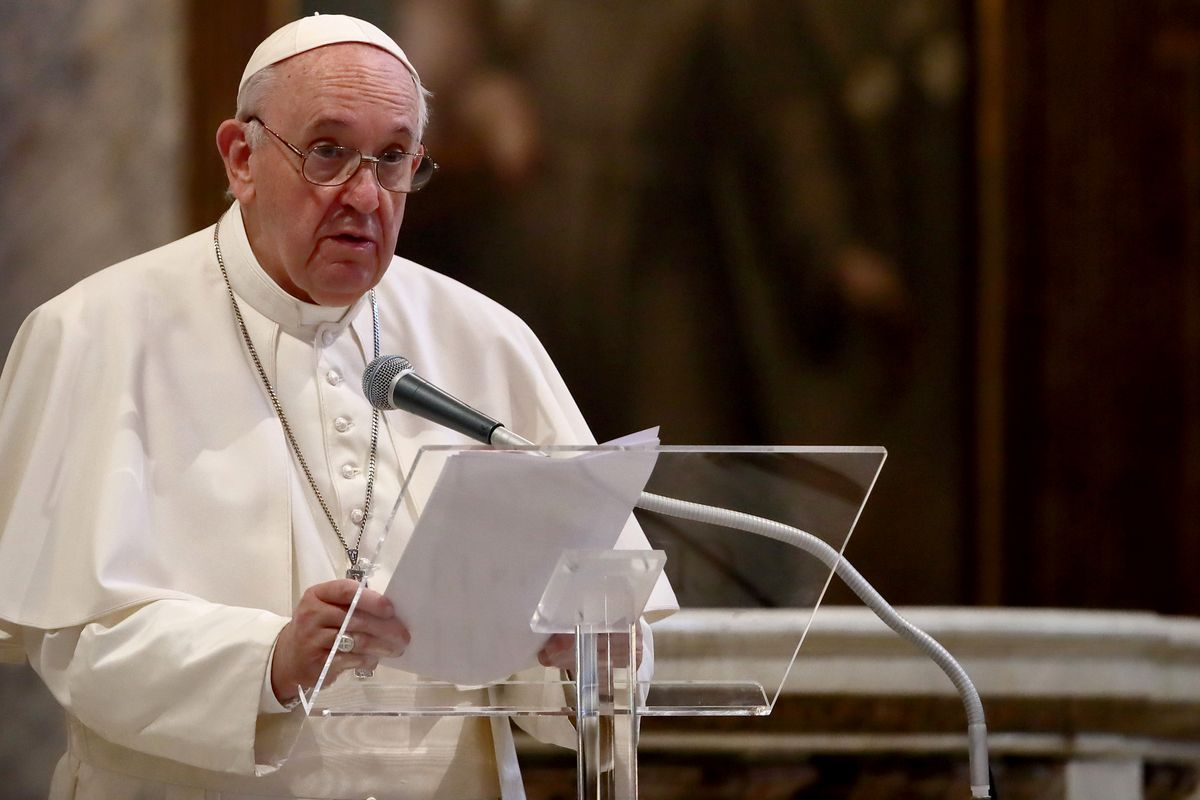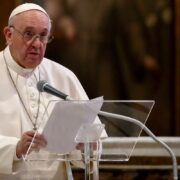PRESIDENT Rodrigo Duterte supports the recognition of same-sex unions in the Philippines following Pope Francis’ endorsement of same-sex civil unions in a feature-length documentary, Malacañang said on Thursday, October 22.
“The President has said it over and over again, pabor po siya sa isang batas na magri-recognize ng civil union sa mga parehong same-sex relationships (he is favor of a law that will recognize civil union of same-sex relationships),” Presidential Spokesperson Harry Roque said.

He added, “Recognition of civil union has always been supported by the president.”
In the documentary “Francesco,” Pope Francis called for civil unions for same-sex couples.
“They’re children of God and have a right to a family. Nobody should be thrown out, or be made miserable because of it,” the pontiff said, referring to same-sex couples. “What we have to have is a civil union law; that way they are legally covered.”
Roque noted that Catholic lawmakers no longer have the basis to object to the passage of civil union laws in the country after Pope Francis’ recognition.
“Depende na lang iyan sa prayoridad ng ating Kongreso (It depends on the priority of the Congress). Pero with no less than the Pope supporting it, I think even the most conservative of all Catholics in Congress should no longer have a basis for objecting,” he said.
Filipino Catholic bishops, on the other hand, did not take the Pope’s words well, seeking verification from the Vatican itself.
“It is just a documentary film, so not official and should be verified. Being a film, there could be insertion or edited, or just for propaganda so that it could be talked about or patronize,” said Bataan Bishop Ruperto Santos.
Legazpi Bishop Joel Baylon, in a separate statement, said: “I withhold my take on this because we have not received any official statement from the Vatican about this. As it happened in the past, his words are often misinterpreted by the media.”
Retired Sorsogon Bishop Arturo Bastes, on the other hand, said he has doubts about the “moral correctness” of Pope Francis’ statement.
“For me, this is a shocking statement coming from a pope. In my opinion, this is contrary to divine law, which explicitly permits only the union of man and woman or of opposite sexes of male or female, whatever that union is: civil, legal or sacramental,” he said.
Meanwhile, Fr. Douglas Badong, parochial vicar of the Quiapo Church, pointed out that Pope Francis only called for civil unions, not same-sex marriage.
“For the record, civil union and not marriage. Mananatili pa rin ang turo ng Catholic Church na ang marriage is for babae and lalaki. Maybe nasabi ’yun to appease the rights of the LGBTQ community from a standpoint of civil union (The Catholic Church’s teaching that marriage is for man and woman will remain. He said something to appease the rights of the LGBTQ community from a standpoint of civil union),” he said.
“Ang scripture pa rin ang pagbabasehan kung ano ang pinapangaral ni Jesus (The scripture will remain as the basis for the teachings of Jesus). And I don’t think a Pope will talk about same-sex marriage,” he added.
An official of the Catholic Bishops Conference of the Philippines (CBCP) likewise released a similar statement.
“The Church’s law and doctrine on marriage didn’t change anyway. They remain the same. Meaning, marriage is between a man and woman,” CBCP Public Affairs Committee executive secretary Fr. Jerome Secillano said Friday, Oct. 23.
“At the end of the day, it’s still the government that’s responsible for enacting laws on civil union, while the church is expected to remain firm in its support for the traditional definition and meaning of marriage,” he added.
Secillano, however, pointed out that the Pope’s statement could be a catalyst for discussions about the Church’s doctrine.
“It does not automatically change the Church’s doctrine. But maybe, it can be a catalyst for further discussion and debate, in the spirit of collegiality, from within the Catholic Church, which can possibly lead to either a change or retention of the doctrine in question,” he said.
“The Pope’s remark may be used by LGBT groups and their supporters to advance their agenda. But at the end of the day, it’s still the government that’s responsible for enacting laws on civil-union and the church is expected to remain firm in its support for the traditional definition and meaning of marriage,” he added.





